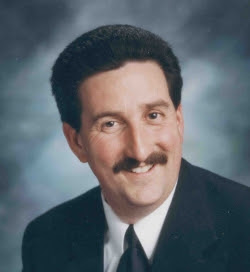Truth, Part 4: The Rest of the Story

Judge Julie Creal
After our morning of visiting the jail and juvenile detention center, we spent the afternoon at the courthouse. Surprisingly, though, we didn't sit through a court case or hear about the everyday ins and outs of the courtroom setting. Instead, for the first part of the afternoon, we heard about a non-adversarial judicial program called "Sobriety Court".
Judge Julie Creal told us about this alternative system which addresses the needs of those who have broken the drunk driving laws for the first or second time. In return for no or greatly reduced jail time, the offender can take part in the Sobriety Court program. The goal of the program is to help people get clean and sober. Unlike normal court proceedings, however, this is done in a non-adversarial way, the judge, prosecutor, defense attorney, law enforcement, and just about anyone else associated with the court (including the bailiff) are working together to help people break out of the dangerous lifestyle they've gotten themselves into.
Is it easy? Not on your life.
For approximately the first three months, the participant has to have daily preliminary breath tests. Up to three times a week, they may have random urine tests. They must attend a 12-step program, etc, etc. And who pays for it? They do. On top of that, since they've been found guilty of drunk driving, they won't have a license, so they have to find some other way (friend or family member) to get themselves to the testing locations.
And that's just the first three months. This process takes at least 18 months and can take two years or longer! Still, given the overcrowding in the jail and the ultimate benefit in the participant's life, this path certainly beats the alternative.
Sheriff Dan Minzey
I think the best part of the whole discussion was just the forthrightness with which the three presented their situations. The Gregs told us quite clearly the challenges that they are having right now with budgetary issues. This is going to lead to the loss of several civilian positions and the demotions of 8 police leaders (3 lieutenants will be reduced to sergeants and 5 sergeants will be demoted to officers). The demotions are not for any lack of performance, but are based simply on seniority. It's a bad situation and there are going to be a lot of unhappy people.
At the same time, our forces, which a few years ago were close to the top of the technological scale have started to fall back to the middle of the pack. Without adequate funding, they can't even consider upgrading their existing infrastructure to include such systems as digital video systems, in-car ticketing and reports (integrated with a centralized police data repository), and voice-activated computer support. In my ride-along with Officer Dye, I could see how that last feature alone would make their task so much easier. For some reason, driving at top speeds to come to someone's rescue and typing on the laptop to find out the details of the situation are mutually exclusive activities (or should be).
We talked about a number of other issues, but one of the big questions they had for us was how they could better tell their own story to the public. Unfortunately, the local media doesn't always talk about the areas where law enforcement is meeting with success. Often the focus is only on the much more rare situations where things don't go well, or when an individual falters and falls short of the high standards we hold for those in positions of authority. Of course, those stories must be told. To be fair, though, shouldn't we also get to hear about the other 999 times when these heroes live up to those high standards?
My idea? Most businesses have scores of testimonials on their websites (mine included). Maybe the police should have a few of those on their site. I'm sure that there are more than a few people around town who have had positive experiences with our law enforcement agencies who would be willing to tell their stories.
So, how do you think the Police and Sheriff's office could better get the (good) word out?


No comments:
Post a Comment